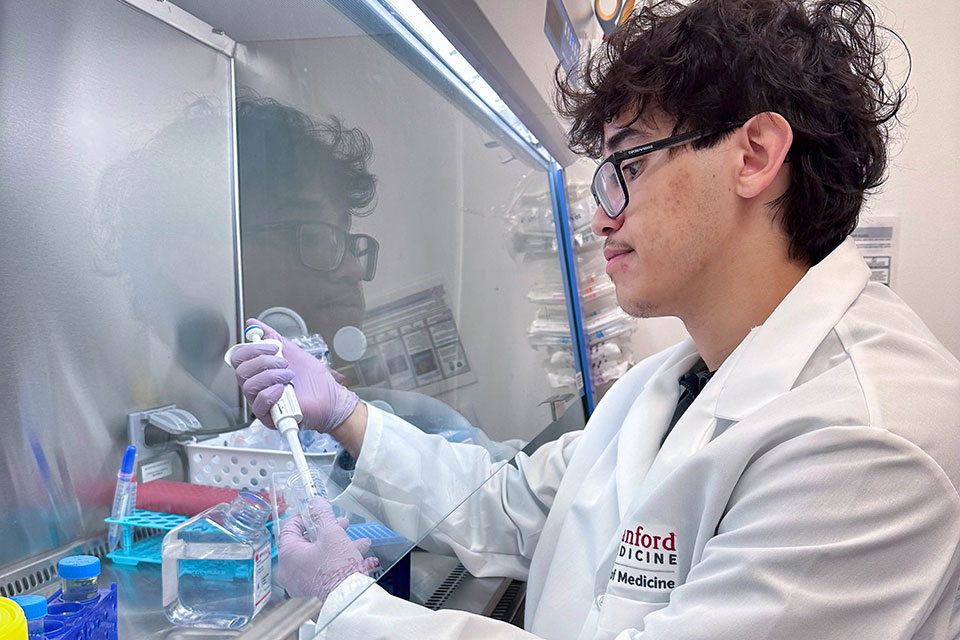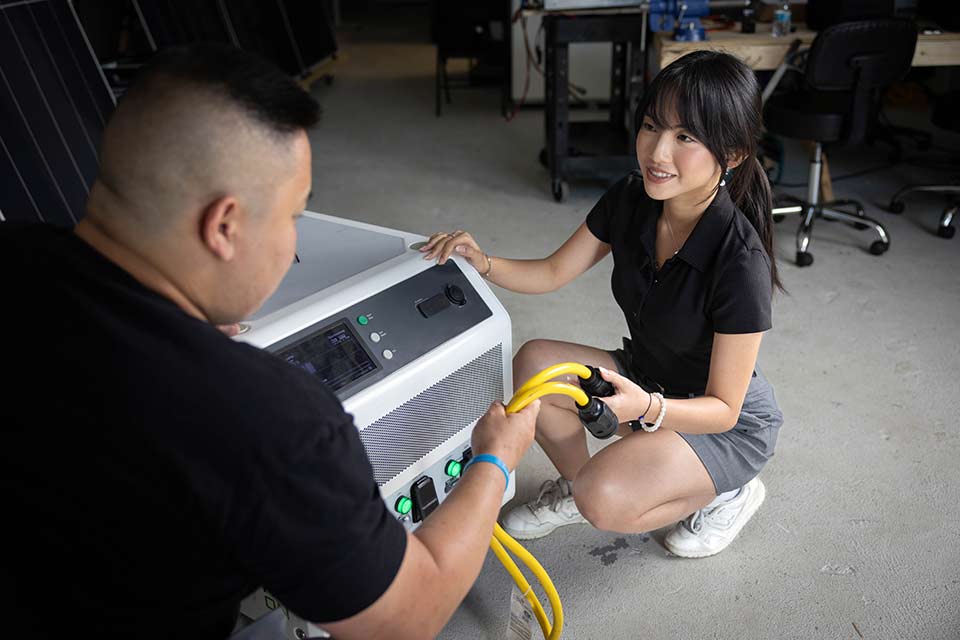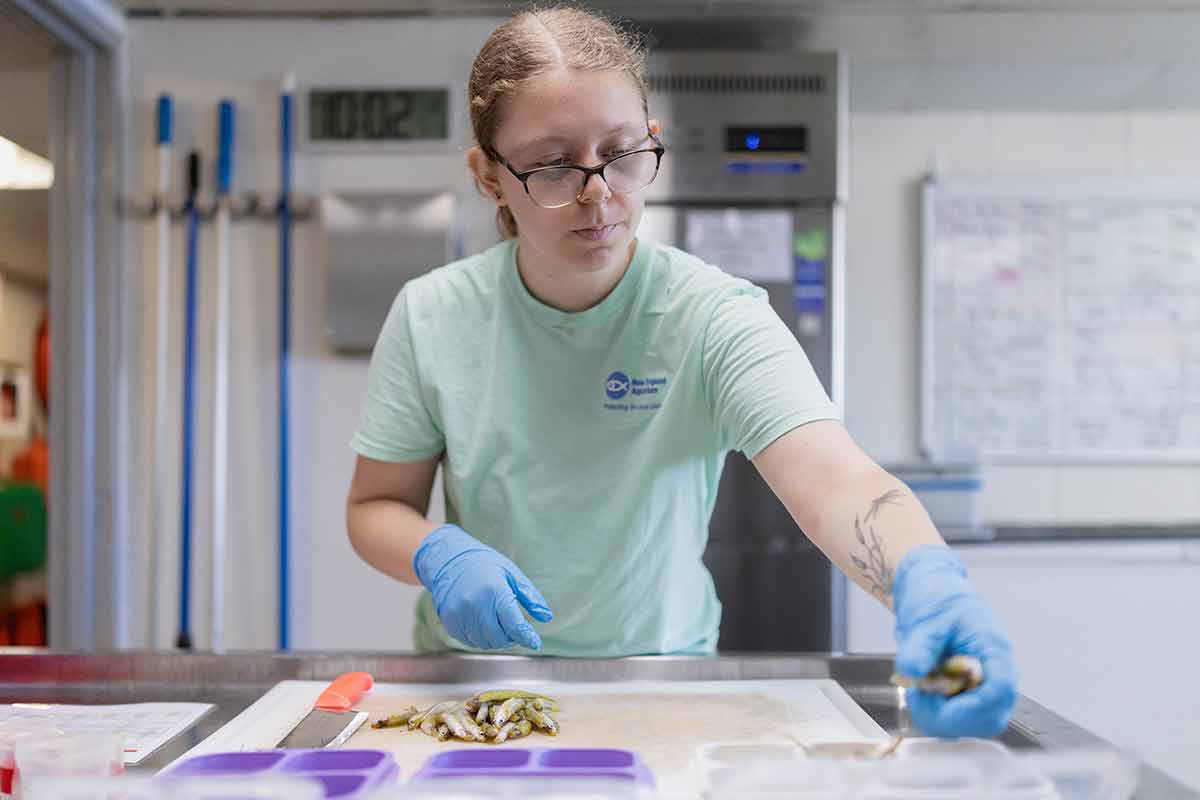Learning skills to find a cure

By Laura Gardner
Photography by Keola Asing and Mohammed Loqman Ansari
August 25, 2025
Walid Ichcho ’27 readily admits a career in research isn’t for everyone. For one thing, building a profession around discovery entails regular failure. It can take years of painstaking research before a real breakthrough is made.
But if you’re as passionate about curing disease as Ichcho is, then a life in medicine and research seems truly exciting.
This summer, the neuroscience and biology double major tested this hypothesis in a 12-week internship at Stanford Medicine, on the campus of Stanford University. The internship was funded by Brandeis’ World of Work fellowship.
Mentored by a Stanford post-doc and working alongside a team of scientists, Ichcho helped run experiments in a biomedical lab, read up on relevant studies, engage in robust discussions about the research at hand and shadow lab members on their projects.
The team’s main objective: to find a therapeutic approach to treat the autoimmune diseases systemic lupus and rheumatoid arthritis.

“It’s very exciting and innovative work,” says Ichcho, who has pursued a strong research interest in neurodegenerative and autoimmune diseases in his coursework at Brandeis, including a class on the neurobiology of human disease. As a first-year, he worked in a lab that used sequencing techniques to study the genomic and epigenetic factors potentially involved in the early development of Alzheimer’s.
“Brandeis is such a small school that it’s really easy to talk to people in the field and collaborate on interesting research,” he says. “You get to meet new people who can help you network and connect with people who can help you professionally.”
Well prepared academically for the Stanford Medicine internship, Ichcho says he benefited most from honing his so-called ‘soft’ or ‘durable’ skills — time management, adaptability, flexibility, collaboration and teamwork.
“This internship was really, really valuable because I was able to collaborate with people,” he says. “I got to ask the scientists questions about how they think critically, and how to be a good researcher.”
There have been many ‘aha’ moments. “This was the first time I was on a team — expected to communicate, collaborate, work as a team member, and even more important, be adaptable and manage my time — those are two crucial things I totally underestimated,” he says.
Ichcho is planning on enrolling in medical school after graduation, and the internship has given him plenty of opportunity to discuss the professional aspects of a medical degree versus a doctorate in neuroscience. He may decide to pursue both.
“My Stanford Medicine internship has helped me refine my professional goals and solidify my interest in pursuing a career in neurodegenerative disease research,” says Ichcho. “It’s given me a clearer vision of the kind of impact I want to have through science.”
Brandeis undergraduates who undertake unpaid internships in such fields as social justice, Jewish service, politics, public service and more may pursue a World of Work fellowship, a competitive grant that helps reduce financial obstacles, offered through the Hiatt Career Center.


